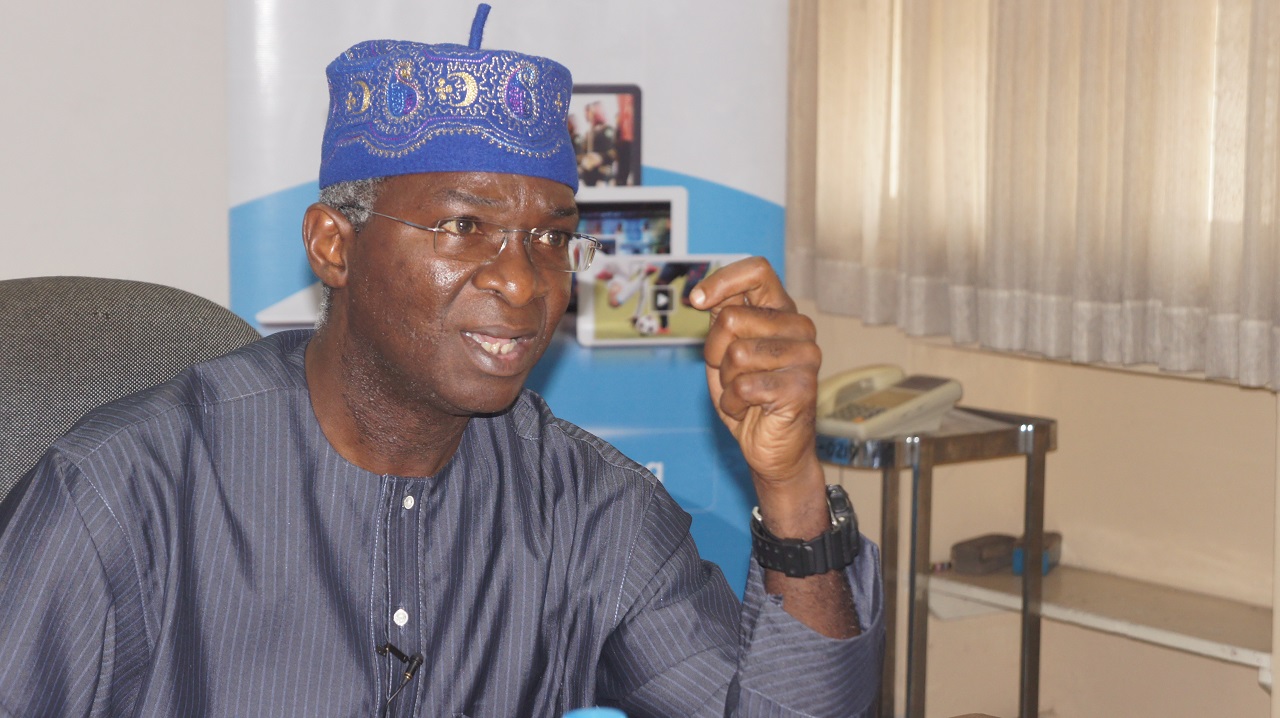The Federal Government, on Thursday, September 23, 2021, declared its renewed efforts towards committing huge resources to the building of infrastructure across the country, noting that no nation or community can grow bigger than the stock of infrastructure.
Babatunde Raji Fashola, the minister of works and housing, who made the declaration in his address at the 27th meeting of the National Council on Works and Housing held at the Command Guest House, Bauchi, Bauchi State, said the wealth of any country is adjudged by the volume of its infrastructure.
Fashola, who insisted that infrastructure investment is the most legitimate way to distribute wealth in any economy, noted that “The nations that are richer than us have more infrastructures than us.”
According to him, “And in order to bridge this gap we have to invest; because no nation or community can grow bigger than the stock of infrastructure.”
He said, “This is why it is not surprising that during campaigns for elections and after elections, you will find discussions not only centering around roads, bridges, rails, schools, hospitals, water supply, and power supply to be provided, you will also find that in the inauguration speech of every President, Prime Minister, Governor and other elected public officers, time is dedicated to addressing the provision of infrastructure.
“I am sure our host will recall that he made similar commitments in his inauguration speech on May 29, 2019:
“At the core of this mandate is the crucial drive to give Bauchi State citizens a better prospect and greater opportunity for a prosperous life. Reducing poverty and empowering our citizens in the areas of Agriculture, Education, urban and rural infrastructure among others.”
“Infrastructure also helps to make people efficient, it creates competition and leads to productivity. Currently, the Federal Government is executing 895 contracts in 795 projects spanning over 13,000 km of roads and bridges nationwide.
“Across all of these, engineers, geologists, surveyors, lawyers, bankers, suppliers, artisans, and laborers are involved in an ecosystem of enterprise from which they earn a daily, weekly or other periodic income.
“But that is only part of the story, the employment. The other parts include improved asset value, because everywhere a new road or bridge is built, the land value appreciates by up to 30 percent creating enormous capital gain.
“On the completed sections of the roads, journeys that used to take days now take only a few hours, journeys that took hours are now reduced to minutes; and if it is true that time is money, clearly reduced journey times currently being delivered across Nigerian roads is money either through savings on journeys and fuel cost, or utilisation of time saved for other productive activities, not to mention the health benefits attributable to shorter travel time and reduced stress.
“So when President Buhari committed on June 12, 2019, to taking 100 million people out of poverty in 10 years, his vision was not a Federal Government vision but a national one, which has started with the work being undertaken in all states and FCT and to which the Federal Government is contributing through infrastructure.
“In the pursuit of this National vision, I urge all of us to embrace the more holistic view and definition of poverty as not only the number of jobs, or amount of cash, but also well-being, efficiency, and the lack of access.
“For example, if a one-hour journey takes six hours even in the best car, or land value is stagnant because it lacks an access road, the reversal of these situations by improved journey time or provision of access roads are steps towards prosperity.
“Similarly, all those employed in the process of building the roads, surveyors, contractors, engineers, bankers, artisans, suppliers, and lawyers have certainly been impacted on the income side.
“Regrettably, we cannot build forever and so when the infrastructure project is completed, most of those employed in the building must leave the site to look for new opportunities.
“This is the heart of the matter and this is the message that the theme of this council seeks to focus on. What should we do in addition to building infrastructure, in order to keep the jobs on.
“The answer, Ladies and Gentlemen is simple. We must maintain the infrastructure we built.
“This is important for many reasons, the first of which is that we preserve the life of the infrastructure and get the best value for the money we spent on it.
“The second reason is that a maintenance economy is a critical contributor and driver of GDP in many economies around the world.
You will notice that I have spoken about a “maintenance economy” not a “maintenance culture.” This is because maintenance is not a cultural thing, it is an existential matter of survival, bread and butter, and income.
“Available data shows that in the “built industry” only about 30 percent of the manpower is employable by design and construction which lasts until the project is completed; while the remaining 70% are employed in the process of “operation” and “maintenance” of the infrastructure.
“These are the reasons why the development of a maintenance economy must commend itself to all of us here and why we must all return home not only to think about it, but to do something about it.
“The question is what needs to be done? My answer is that we must develop policies to stimulate the economy of maintenance.
“All that we need to do is take a look at the state of existing infrastructure, and we are likely to see bridges with damaged expansion joints and bearings, buildings with broken windows and leaking pipes, doors that do not lock properly, toilets that do not work well and so much more.
“If we reflect on what we see, we will realize that these are jobs for plumbers, carpenters, printers, foundry workers, and many more skilled and unskilled people in our country and it is our responsibility to connect these people to the opportunities that infrastructure in disrepair represents for sustainable employment.
“The Federal Government has already initiated such a policy in 2019, and we are now at the implementation stage.
“This has seen the Head of the Federal Civil Service approve the creation of the Department for Federal Public Asset Maintenance.
“In nine facilities that we assessed the conditions of fittings such as fans, air conditioners, light fittings, toilets and wash hand basin, we found that out of 41,800 installations 12,459 representing 29.8 percent were not functioning. These are people’s jobs to repair, supply, replace and install as the case may be.
“The development of the maintenance plan and the procurement plan leading to invitation to tender and award of maintenance contracts for rehabilitation and facility management is a sure pathway to job creation.
“Currently we are undertaking maintenance works on 41 bridges that has employed 1,157 people directly and created 3,309 indirect jobs and we have facility management contracts for 25 federal secretariats across Nigeria after we completed renovation works. Each facility manager employs at least 40 people.
“This is only a tip of the iceberg because the supply side that supports maintenance involves the purchase and supply of paint, bleach, rakes, brooms, and other tools which create employment for small and medium-sized enterprises which is another activity of economic empowerment.
“When we started the office of Facility Management in Lagos State, I recall one day when we awarded contracts for the facility management of 600 schools. This was employment not only for 600 small contractors but also for the people that were employed to do the job.”







